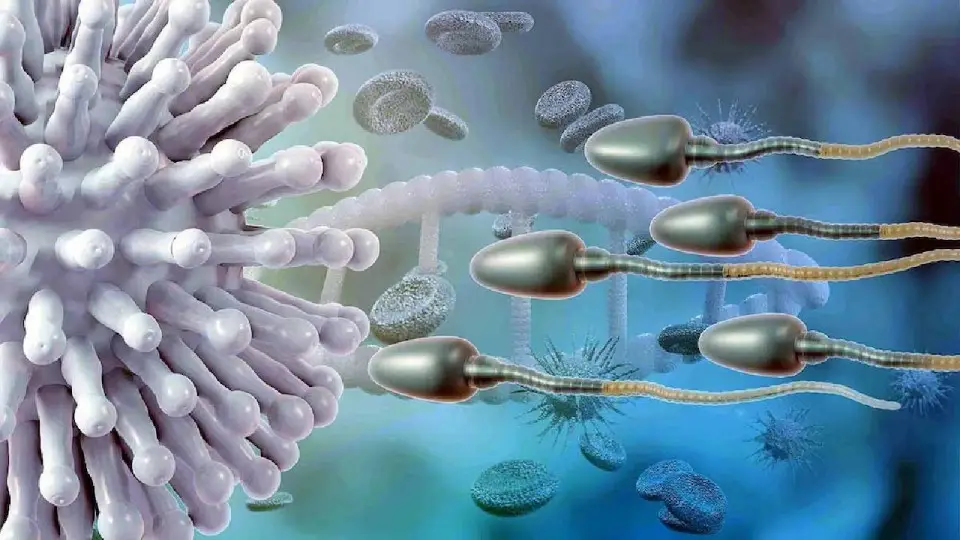
Covid, Coronavirus (Credit:Top Indian News)
International News: The COVID-19 pandemic shook the world with deaths, lockdowns, and fear. Now scientists in Australia say its impact may last even longer than expected. Researchers at the Florey Institute of Neuroscience and Mental Health in Melbourne found that the virus changed the sperm of male mice. This change, they argue, carried forward to their offspring, who showed higher levels of anxiety-like behavior. Published in the journal Nature Communications, the study points to a possible generational effect of the pandemic. Scientists warn this raises questions about whether human children could also inherit such mental health risks.
In their research, scientists infected healthy male mice with the COVID-19 virus and later paired them with uninfected female mice. The next generation of pups was closely studied for both health and behavior. Lead researcher Elizabeth Kleimann explained that pups born from infected fathers showed greater signs of anxiety compared to those whose fathers were healthy. This difference was clear and consistent. Even when mothers were unaffected, their offspring developed unusual behavioral patterns linked with stress. These results suggest the impact came specifically from the father’s sperm after COVID infection.
The researchers noted that all offspring of infected fathers showed changes, but female pups displayed stronger differences. In particular, genes in the hippocampus—the brain’s center for emotion control—were altered. Co-researcher Carolina Goubert said these changes were caused by epigenetic inheritance. This means the problem passed on without altering the DNA code itself, but through chemical changes in the sperm. Such changes can interfere with brain development and may increase the risk of anxiety in later life. The finding highlights how infections can affect generations through subtle biological shifts.
This is the first study to clearly show COVID infection having long-term effects on the next generation. According to senior researcher Anthony Hannan, the virus altered RNA in sperm cells, and these small molecules control genes involved in brain growth. If such findings also apply to humans, the consequences could be very serious. Hannan warned that millions of children worldwide may be at risk if similar changes are found. He stressed the need for urgent research in humans to confirm these animal study results before it is too late.
Even before this discovery, COVID was known to have lasting effects. Since 2020, more than seven million deaths have been officially recorded by the World Health Organization, with true numbers likely higher. Mental health took a huge blow, especially among young people whose education and social lives were disrupted by lockdowns. Schools closed for long periods, leaving learning gaps that still remain. Many children and teenagers reported feelings of loneliness, stress, and anxiety. The new study adds another layer of concern by suggesting these effects might even continue into future generations.
A 2023 review published in the journal Nature Human Behaviour looked at research from fifteen countries. It found that the pandemic caused major learning losses and setbacks in education. Many children were not able to recover the gap. Combined with the possibility of inherited brain changes, the threat becomes more alarming. Experts believe the COVID crisis has exposed the world’s weakness in preparing for global health emergencies. This latest research warns that the pandemic’s shadow may stretch far beyond the people who directly suffered from infection.
Scientists say the message is clear: COVID is not only about the past, but also about the future. The pandemic changed lives, behaviors, and possibly even biology. Researchers call for more studies on humans to check whether sperm RNA changes are real in men who had COVID. If confirmed, this would mean protecting future generations requires urgent steps now. The pandemic reminded the world that health must be the top priority. As one scientist said, “We must learn from this tragedy, because what happens at the start of life can shape its end.”













Copyright © 2025 Top Indian News
